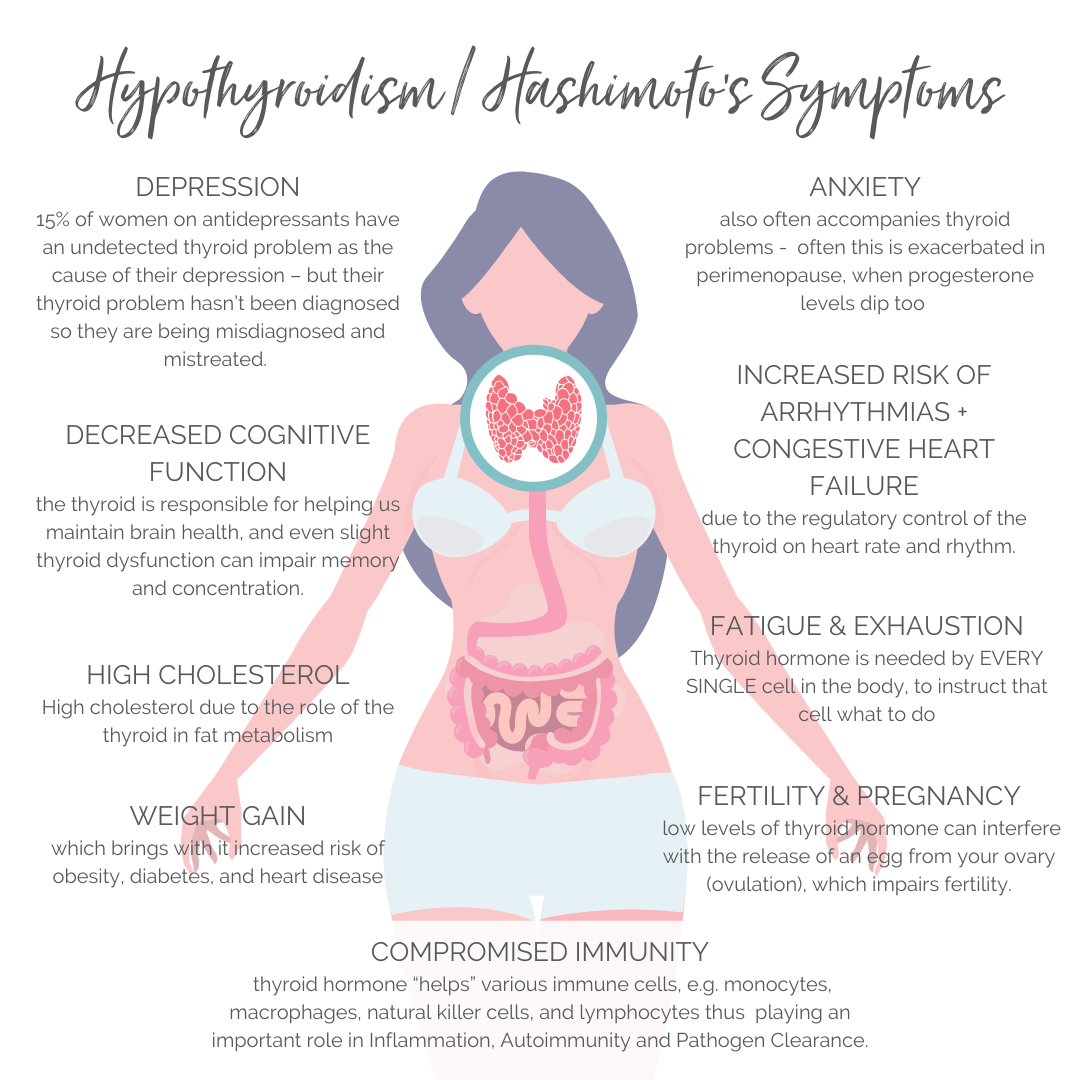Hypothyroidism and Hashimotos
Most recent figures show that one in eight women can expect to develop hypothyroidism in her lifetime!
The most common form of hypothyroidism is Hashimoto’s, and if not supported or indeed it’s root causes addressed can cause an array of symptoms including depression, anxiety, decreased cognitive function, increased risk of arrhythmias and congestive heart failure, high cholesterol, fatigue and exhaustion, weight gain, and compromised immunity.
So, if you’re not already aware of the magnitude of this issue in women’s health, I invite you to take a deeper dive.
The greatest mimicker of sub optimal thyroid function is insulin resistance, a condition where the body’s cells become overwhelmed to the point they no longer respond to insulin and become “resistant” to the signal.
Insulin is the “key” that unlocks the door on a cell to release sugar from the bloodstream into the cell where it may be utilised. Instead the glucose / sugar builds up in the blood steam and the pancreas pumps out increasing amounts of insulin in an effort to open that door!
The problem is this increasing insulin:
Triggers an enzyme in the ovaries (17,20 lyase) to make more testosterone. And in women, Increasing testosterone levels (androgens) causes hair loss, weight gain, acne, fertility issues through disruption of ovarian hormone production - hello PMS, PCOS and more
Insulin is a storage hormone, so fuels abdominal weight gain. It’s a double whammy, as high insulin levels also inhibit the hormone that breakdown this stored fat.
Signs and Symptoms of Insulin Resistance:
Weight gain - especially around the stomach and waist - insulin triggers the body to store fat
Fatigue - less glucose entering mitochondria of all cells, results in decreased energy levels
Elevated DHEA and / or Testosterone - a hormonal imbalance can result in excess testosterone production and subsequent weight gain, hirsutism and hair shedding in women
Feeling sleepy - especially after eating
Elevated Cholesterol and triglycerides
High blood pressure - if the body stops absorbing insulin, an increase in blood pressure is a very common sign
Brain fog / Difficulty concentrating - high insulin levels affect brain chemicals and neurotransmitter balance
Depression - due partly to the physical changes caused by insulin resistance and party by the effects insulin resistance has on brain chemistry and neurotransmitter balance
Increased hunger or cravings - when insulin levels and / or blood sugars are elevated even slightly, the body stops turning food into energy. This results in a constant feeling of hunger or cravings for certain foods, especially carbs or sugar (bread, pasta, chocolate, biscuits, cakes etc) as the body signals its need for fuel
High Blood Insulin Levels - this is not high blood sugar, this is an elevation in fasting insulin because people with insulin resistance often have normal fasting glucose levels, especially during the early stages of the condition.
These signs & symptoms are all potential indicators of insulin resistance especially in women. You don’t need to have ALL of them to be positive for insulin resistance. But also it’s easy to understand why many are assumed to be related to a low thyroid function - it’s REALLY important to get tested and work with your doctor or informed health care professional that can help identify what’s driving your symptom picture.
In health,
Tanya x



